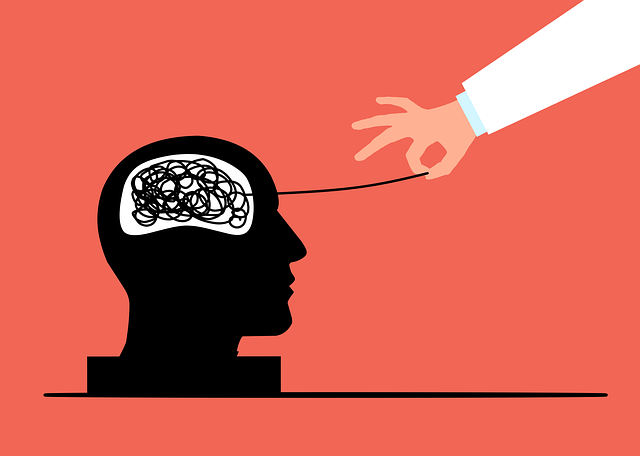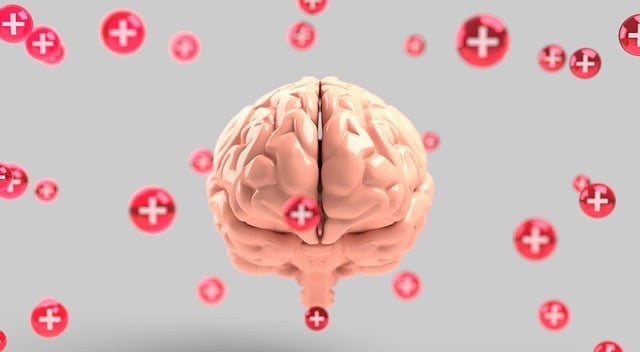Mindfulness meditation emerges as a powerful therapy for adults with functional neurological disorders (FNDs), addressing chronic pain, fatigue, and cognitive difficulties. By fostering self-awareness and promoting mental wellness, regular mindfulness practices lead to improved emotional regulation and reduced stress. Starting with just 5–10 minutes daily, consistency is key to reaping benefits such as enhanced mental clarity and inner strength. Overcoming initial challenges through support from mental health professionals can unlock mindfulness's profound effects on FND management and overall mental wellness.
Mindfulness meditation offers a transformative path for adults living with functional neurological disorders (FNDs). This practice, rooted in ancient wisdom, empowers individuals to cultivate present-moment awareness and navigate the complexities of FND symptoms. This article provides comprehensive guidance on understanding mindfulness meditation, establishing a consistent routine, and overcoming challenges. By exploring practical tips and the benefits of regular practice, readers will discover how this therapeutic tool can enhance well-being for those managing FNDs.
- Understanding Mindfulness Meditation for Adults with Functional Neurological Disorders
- Getting Started: Practical Tips for Establishing a Meditative Routine
- Overcoming Challenges and Harvesting the Benefits of Regular Practice
Understanding Mindfulness Meditation for Adults with Functional Neurological Disorders

Mindfulness meditation has emerged as a powerful tool for adults with functional neurological disorders (FNDs), offering a unique approach to therapy. FNDs can significantly impact daily life, causing symptoms like chronic pain, fatigue, and cognitive difficulties. Mindfulness practices provide a way to navigate these challenges by fostering self-awareness and promoting mental wellness. Through regular meditation, individuals can learn to observe their thoughts and sensations without judgment, leading to improved emotional regulation and reduced stress.
This ancient practice isn’t just about calming the mind; it’s a form of self-care that empowers adults with FNDs to take charge of their well-being. By integrating mindfulness into daily routines, individuals can enhance their ability to manage symptoms, prevent burnout, and cultivate a deeper sense of mental resilience. The benefits extend beyond the moment, as consistent practice contributes to long-term improvements in overall mental wellness, making it an essential component in the self-care arsenal for those navigating FNDs.
Getting Started: Practical Tips for Establishing a Meditative Routine

Starting a mindfulness meditation practice can feel daunting, especially for those managing conditions like Functional Neurological Disorder (FND). However, with consistent effort and practical guidance, establishing a daily routine can be transformative. Begin by setting aside just 5–10 minutes each day for your practice. Choose a quiet space where you won’t be disturbed, and create a comfortable posture that supports stillness—sitting cross-legged on the floor, or using a chair if needed.
A simple way to start is by focusing on your breath. Close your eyes and gently bring your attention to the sensation of air flowing in and out of your nostrils. When thoughts inevitably arise, acknowledge them without judgment and gently return your focus to your breath. Consistency is key—even brief daily sessions can contribute to significant improvements in mental clarity, emotional regulation, and inner strength development, which are crucial aspects of trauma support services and mental illness stigma reduction efforts.
Overcoming Challenges and Harvesting the Benefits of Regular Practice

Overcoming challenges is an integral part of establishing a regular mindfulness meditation practice, especially for those managing conditions like Functional Neurological Disorder (FND). The initial stages may present difficulties; individuals might struggle to find stillness amidst their thoughts or feel disoriented during meditation. However, consistency is key. With dedicated practice, one can learn to navigate these challenges and uncover the profound benefits that mindfulness offers. Regular meditation has been shown to enhance mental wellness, providing a valuable therapy for adults with FND and other similar conditions.
Journaling exercise guidance can be a powerful tool to support this journey. Writing down thoughts and experiences related to meditation allows individuals to track their progress, identify triggers, and process emotions. Additionally, risk assessment for mental health professionals is essential when guiding clients through mindfulness practices, ensuring safe and supportive sessions that cater to individual needs. As one overcomes initial hurdles, stress management becomes more accessible, leading to a holistic improvement in overall mental wellness.
Mindfulness meditation offers a powerful tool for adults with functional neurological disorders (FNDs) seeking therapy. By understanding its principles, establishing a regular practice through practical tips, and overcoming challenges, individuals can harvest the benefits of enhanced focus, reduced stress, and improved overall well-being. Regular mindfulness meditation practice has the potential to revolutionize daily life, fostering resilience and a deeper connection with one’s mind and body.








